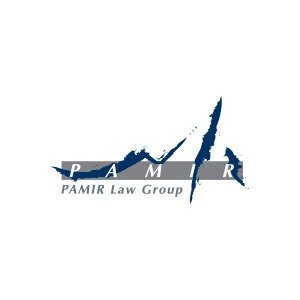Best Tax Increment Financing Lawyers in Taipei
Share your needs with us, get contacted by law firms.
Free. Takes 2 min.
List of the best lawyers in Taipei, Taiwan
About Tax Increment Financing Law in Taipei, Taiwan
Tax Increment Financing (TIF) is a public financing method that is used to subsidize community improvement projects in Taipei, Taiwan. It works by diverting future tax revenue increases from a defined area toward a designated redevelopment project or public improvement initiative. This financing approach aims to stimulate economic development and urban renewal by allowing areas within Taipei to reinvest in infrastructure, enhance public spaces, or redevelop zones in need of revitalization. TIF is considered a valuable tool for urban planners and local governments to support growth without directly increasing the tax burden on residents.
Why You May Need a Lawyer
Engaging a lawyer familiar with TIF can be crucial in various situations, such as:
- Navigating complex TIF statutes and local regulations that govern project eligibility and implementation.
- Negotiating TIF agreements and ensuring that contract terms are applied fairly and protect your interests.
- Assisting developers and municipalities in ensuring compliance with legal and procedural requirements.
- Resolving disputes between stakeholders, which may include local governments, developers, and property owners.
- Advising on tax implications and the financial viability of proposed TIF projects.
Local Laws Overview
Tax Increment Financing in Taipei is primarily regulated under local urban renewal legislation and economic development laws. Key aspects of Taipei's TIF-related laws include:
- Designation of Specific TIF Zones: Legal frameworks establish criteria for identifying and designating areas eligible for TIF initiatives.
- Approval and Oversight: Local government bodies assess and approve TIF projects, ensuring they meet public policy objectives.
- Public Participation: TIF laws require community input and public hearings to decide on the adoption and implementation of TIF plans.
- Financing Mechanisms: Legal provisions detail how tax increments are calculated, collected, and allocated toward the project costs.
- Accountability and Transparency: Regulations assume proper stewardship of funds, setting mandates for reporting and project auditing.
Frequently Asked Questions
What is Tax Increment Financing?
Tax Increment Financing is a method to use future tax gains to finance improvements within a designated area, promoting economic development.
Who benefits from TIF?
TIF benefits local communities by improving infrastructure and attracting new investments, thereby increasing property values and quality of life.
Is TIF a tax increase?
No, TIF is not a new tax. It reallocates the increase in taxes resulting from increased property values within a TIF district to fund development projects.
How are TIF districts created?
TIF districts are created by local government decision, based on criteria outlined in urban renewal and redevelopment laws.
Can a TIF district's funds be used for any project?
No, funds from a TIF district must be used for projects that are approved by the local governing body and comply with legal requirements.
How long does a TIF district last?
The duration of a TIF district is typically set by legislation or the approving body, ranging from 20 to 30 years, depending on the project.
Can a property owner oppose a TIF designation?
Yes, property owners can express their concerns during public consultations or hearings that occur before a TIF district is established.
Is TIF funding guaranteed?
No, TIF funding is contingent on future tax revenue increases, which can fluctuate based on the success and development of the TIF district.
Can TIF be used for housing projects?
Yes, TIF can be utilized to support affordable housing or mixed-use developments as part of a broader urban renewal strategy.
Are there any risks involved with TIF?
Yes, risks include overestimating revenue, political challenges, or legal disputes, which can hinder the anticipated financial benefits of TIF projects.
Additional Resources
For further information related to Tax Increment Financing in Taipei, one can explore resources such as:
- Local Government Units (LGUs): Engage with Taipei's city planning and economic development offices.
- Ministry of the Interior: Offers guidelines on urban renewal policies and infrastructure development.
- Professional Associations: Consult with local legal and urban planning associations for expert guidance.
- Public Libraries and Universities: Access scholarly articles and case studies on the impacts of TIF in urban areas.
Next Steps
If you need legal assistance with Tax Increment Financing in Taipei, consider the following steps:
- Consult with a lawyer specializing in urban development and local taxation laws to discuss your specific case and get tailored advice.
- Gather all relevant documents, including project proposals and previous communications with local authorities, to facilitate the legal process.
- Attend informational seminars or workshops conducted by local government bodies or legal firms addressing TIF-related topics.
- Stay informed about local government announcements and participate in public comment opportunities related to TIF projects in your area.
Lawzana helps you find the best lawyers and law firms in Taipei through a curated and pre-screened list of qualified legal professionals. Our platform offers rankings and detailed profiles of attorneys and law firms, allowing you to compare based on practice areas, including Tax Increment Financing, experience, and client feedback.
Each profile includes a description of the firm's areas of practice, client reviews, team members and partners, year of establishment, spoken languages, office locations, contact information, social media presence, and any published articles or resources. Most firms on our platform speak English and are experienced in both local and international legal matters.
Get a quote from top-rated law firms in Taipei, Taiwan — quickly, securely, and without unnecessary hassle.
Disclaimer:
The information provided on this page is for general informational purposes only and does not constitute legal advice. While we strive to ensure the accuracy and relevance of the content, legal information may change over time, and interpretations of the law can vary. You should always consult with a qualified legal professional for advice specific to your situation.
We disclaim all liability for actions taken or not taken based on the content of this page. If you believe any information is incorrect or outdated, please contact us, and we will review and update it where appropriate.
















